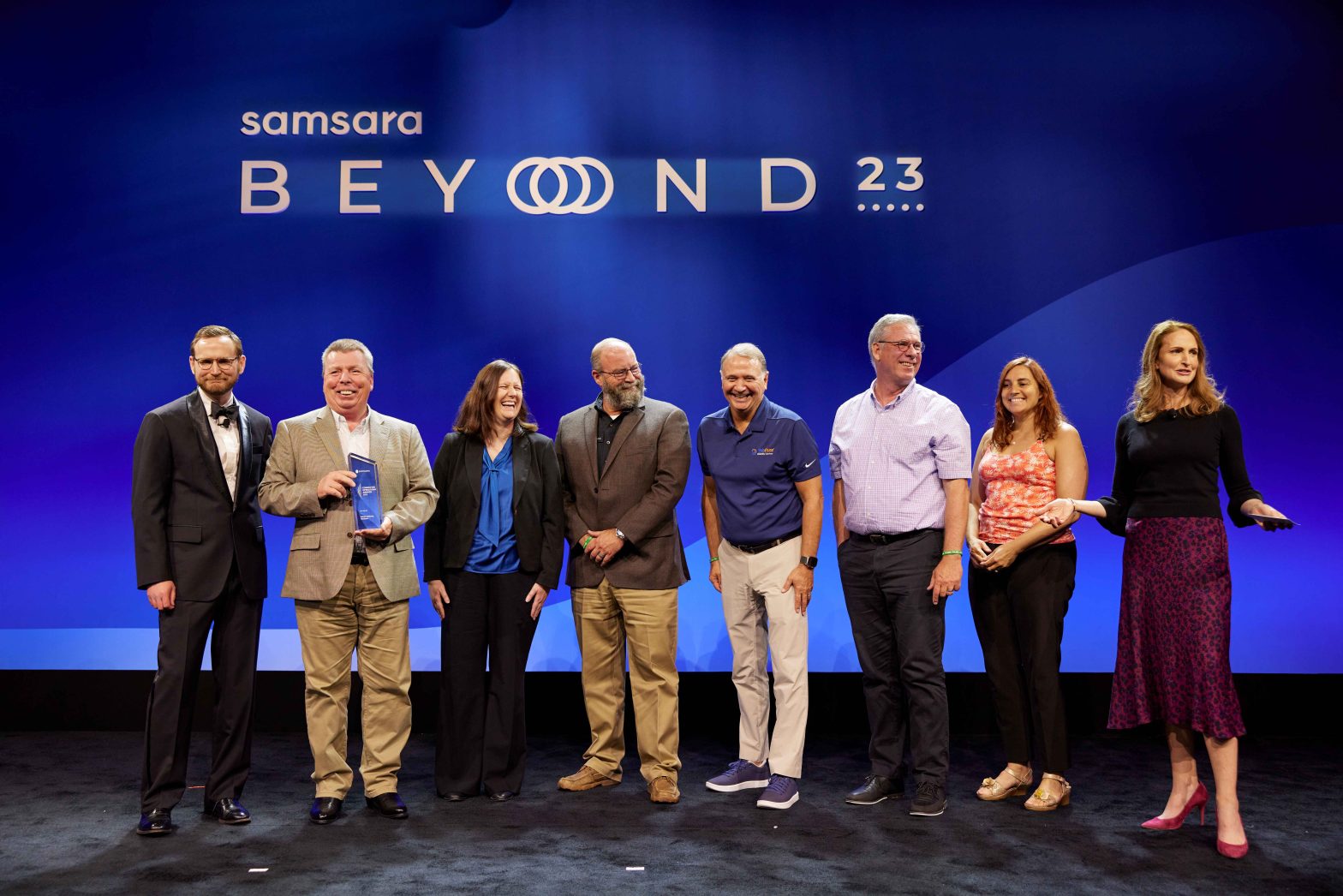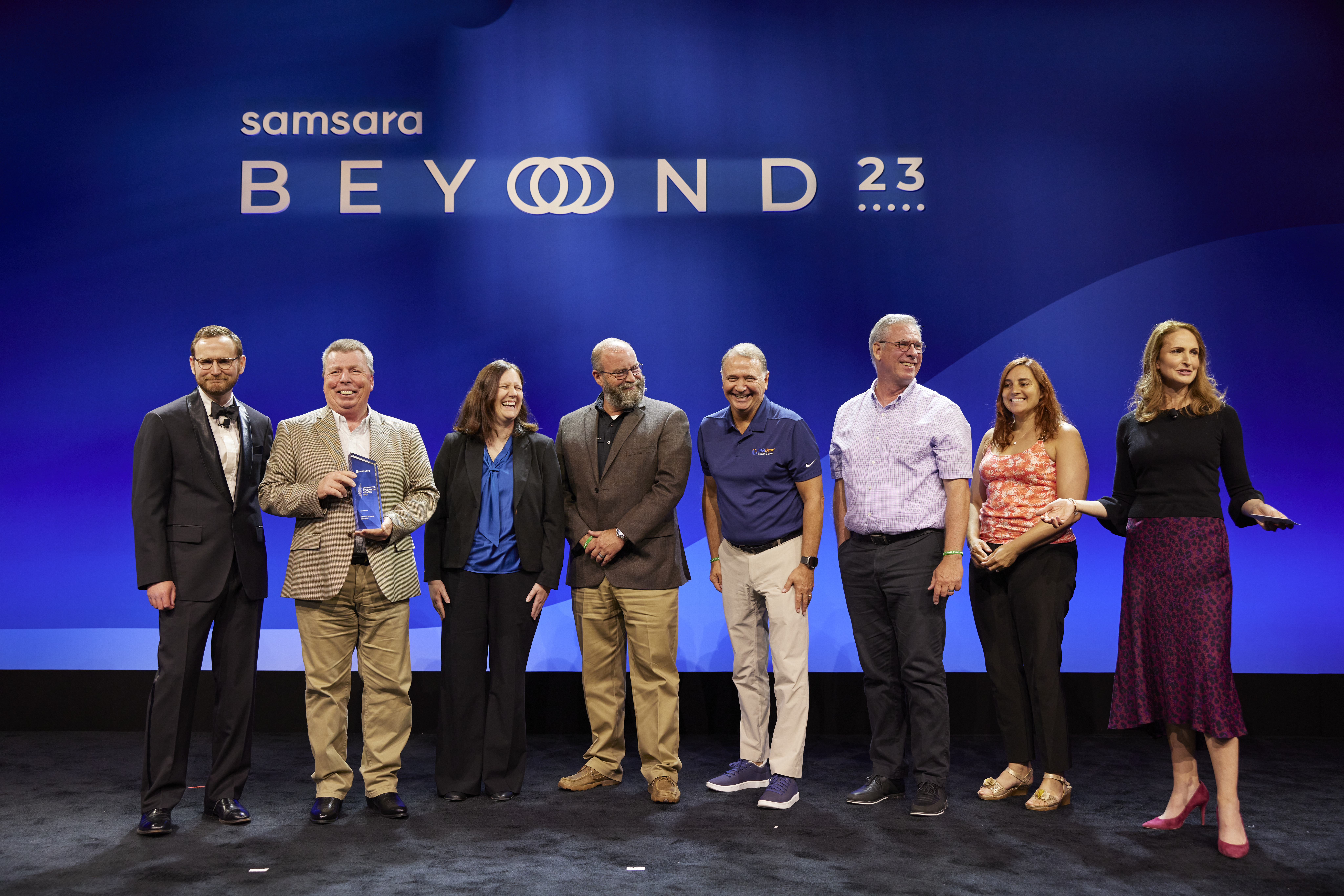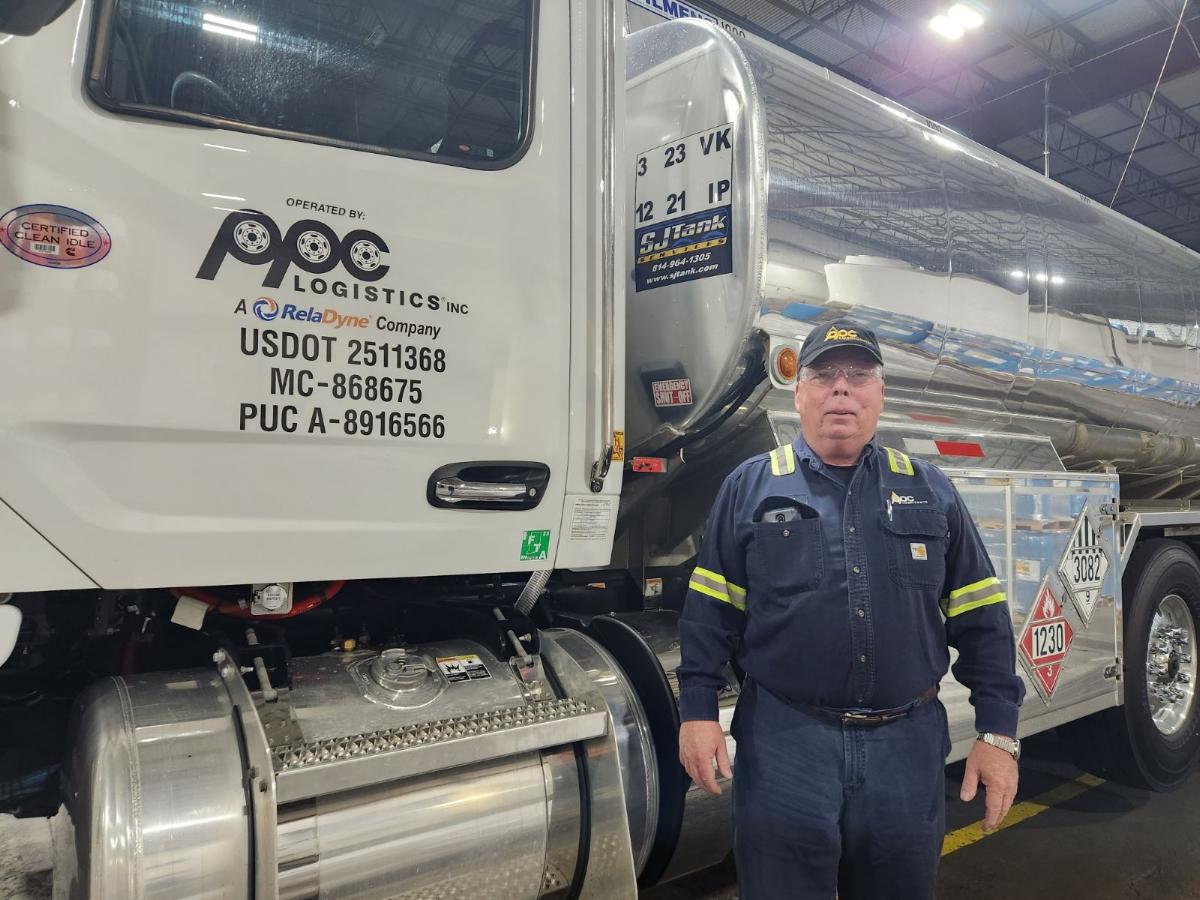
Behind the Wheel: A Candid Q&A with Seasoned Truck Driver on Safety and the Future of Trucking
Source: Samsara Blog
A truck driver’s job—one of the most dangerous and essential in the world—is too often underappreciated. As I’ve traveled the globe meeting hundreds of customers, I’ve seen firsthand how drivers power our economy, all while navigating complex and unique operating environments. Difficult road conditions, traffic, weather variables, and mechanical breakdowns, just to name a few.
Behind every stocked shelf and package delivery is a driver with years of experience and perspective on the skill, training, and dedication required to keep our global supply chain running. Just in time for National Truck Driver Appreciation Week, I’m excited to shine a spotlight on a true industry veteran and celebrate the remarkable—and often invisible—work of truck drivers everywhere.
Robert Chidester has been a truck driver for 45 years, and he was recently named winner of Samsara’s 2023 Top Driver award. At RelaDyne, the largest lubricant sales, distribution, and equipment reliability service provider in North America, Chidester is celebrated by supervisors and peers for his positive attitude and impeccable safety record over the last three years. We recently sat down with him to learn more about his long career and his thoughts on safety, the next generation of drivers, and what he wishes the rest of the world knew about truck driving.
Robert, thank you so much for sitting down with us to talk about your long career. You’ve been driving for an impressive 45 years; what inspired you to become a truck driver?
It all started with my father. He was a truck driver, and back before I even had my license I used to go ride with my dad. Sometimes at night, when there wasn’t any traffic on the road, he would let me drive, and I just loved driving and working with trucks. After high school I joined the Teamsters Union, started driving for a construction company, and I’ve been driving professionally ever since.
Sounds like you learned from the best. What does your day-to-day look like now? What are the biggest challenges you face as a driver?
My day typically starts at 5:30 in the morning, and I drive a variety of vehicles, so each day is a little different. I service gas wells, delivering methanol, glycol, and antifreeze. Some days I’m driving a straight truck, and other days I’m driving a tractor trailer, but the driving is more or less the same.
On the road my biggest challenge is traffic and other drivers. Some people think driving a truck is exactly like driving a car, but it’s not. It doesn’t stop like a car, it doesn’t go around corners like a car, and it can’t go uphill like a car. Some people on the road get really frustrated with trucks, but I think they just don’t understand how a truck needs to operate and drive on the road. Just give us some patience and remember that we’re driving the way a truck needs to be driven safely.
National Truck Driver Appreciation Week is right around the corner. What makes you feel appreciated for the work you do, from your company and from drivers on the road?

I love hearing from my teammates that they appreciate what I do. I hear it all the time from supervisors, dispatchers, and others I work with. Just hearing that makes you feel like people see what you’re doing and lets you know that your hard work is paying off.
RelaDyne hosts appreciation events throughout the year, including during Truck Driver Appreciation Week. They provide catered breakfast or lunch, and we can all get together to talk about what’s working for us as drivers and what we might want support from our supervisors on. It’s a nice way to get together and know we’re supported and valued. Safety bonuses are also a great way to reward drivers who are going above and beyond and make sure other drivers are motivated to drive safely.
When it comes to other drivers on the road, the biggest way to show your appreciation is to remember that safety is the most important thing in the life of a truck driver. Driving a truck is not like driving a car, and sometimes little things you do on the road—like honking or swerving between lanes—can cause stress for us. Just be aware of your surroundings when you’re driving and keep in mind that we are doing our best to keep you and ourselves safe.
I know staying safe is your biggest priority; how has Samsara changed the way you work?
My day-to-day hasn’t changed too much since we installed Samsara AI Dash Cams; it’s mostly made me more focused on driver safety. We had front-facing dash cams before, so I was already monitoring things like my speed and other factors on the road. With the dual-facing dash cams, I’ve become more cautious and more aware of my own habits, and you can see that reflected in my Safety Scores each week—I’m always at or near the top of the leaderboard.
I heard you got a 99.5! We’ll just round that up to 100. Can you share how Samsara technology and alerts have changed the way you drive?
I think they have made me a safer driver overall, and I was a very safe driver to begin with. I’m much more aware of my speed now, especially when going downhill, for example. Now I get alerted, so I know I’m going a little too fast and need to slow down a bit. In the past, if my speed ticked up going downhill, I might not pay that much attention to it. It’s little habits like that I feel like In-Cab Nudges and alerts have made me more aware of.
We heard from your colleagues that you regularly inspire other truck drivers at RelaDyne to drive safer and stay positive. How do you motivate other drivers?
I think my positive attitude has a huge impact. I start every day with a smile on my face and I’m not angry about anything. I just keep reminding other drivers that we’re getting paid to be safe out there, and that we’re really lucky because of that. I’ll also talk through common situations on the road with them or give them tips about certain routes and the best places to stop. I just try to be available to chat in the mornings about anything that comes up and anything I can help with. And of course everyone always likes to compare Safety Scores.
We can see our scores and rankings in the Driver App at any time, so people are always checking on their score and how they compare to other drivers. Every month our leadership prints off all the rankings and we meet to go over everyone’s scores and work together to figure out what could be improved upon. It’s very motivating because the top drivers get recognized in front of everyone and the lower drivers are incentivized to do better.
It sounds like you were also helpful in getting your teammates on board with dual-facing dash cams. How did you talk to them about the technology?
I just brought it to their attention that we are here to do a job, and safety is our top priority. If we have incidents or issues, that costs the company money—and it can cost people their lives. With these dual-facing dash cams, they’re not pushing us to drive faster to get more miles in less time or do anything unsafe. It’s the opposite. We’re getting paid to be safe, and that’s good for everyone.
If you were going to give advice to people rolling out dash cams for the first time, what advice would you give?
Talk to your employees. Explain to them how dash cams can help them in case of incidents, and let them know you’re not going to be sitting there and watching them all day. Just help them understand that dash cams are here to help supervisors and coaches understand where they can make changes that will make everybody safer. If you’re safer, that means the company does well. If the company does well, the driver does well.
It really does pay to be safe. As someone with almost five decades of experience, I’m curious: what do you think will be important to the next generation of drivers?

I think the next generation of drivers is going to be much more computer-oriented and have a lot less knowledge about trucks and truck maintenance. When I started 45 years ago, you had to take care of everything on the truck yourself. You changed the tires, fixed the brakes, and just had to understand how to maintain the truck in general. Now, with technology like dash cams and electronic logs, new drivers will be able to focus on being drivers. I think it’s a good thing for everyone, and will make life a lot better for truck drivers.
In terms of company culture, the biggest thing I hear from drivers is that they want to be home at night. Most people don’t want to work too many hours and they want a set schedule. Typically, truck driving has been an unscheduled job, where you just drive until you get the job done. I think this next generation of drivers will be very interested in figuring out how to make driving more scheduled.
What do you wish more people knew about your job?
Truck driving is a really great job. If you can find the right company and the right fit, it can be incredibly rewarding. Over the years I’ve been able to take very good care of my family, which is so important to me. And it’s comfortable; it’s a job where you can stay cool in the summer and warm in the winter.
Thank you so much Robert, it’s been a pleasure hearing your stories and perspective on the industry. Cheers to 45 years on the road and many more with a perfect Safety Score!

